'The Court has already established that there is a deficit at the UPC; the only thing left to do is calculate how much, which is why we went to the Attorney General's Office.'

The healthcare system's financial crisis cannot wait, and to resolve it, it is essential to calculate the current deficit in the Capitation Payment Unit (UPC), which is the amount each EPS receives per member and is insufficient to cover actual healthcare spending, according to various technical and government reports. In Colombia, for every $100 pesos received from the UPC in 2024, $109.5 were spent.
However, the technical roundtables ordered by the Constitutional Court to update the 2024 UPC and review those of previous years failed to achieve their objective, according to the same high court, which in a recent ruling made clear that the methodology used in the meetings coordinated by the Ministry of Health was inadequate. In its most recent ruling, the Court established that the roundtables must be held again, recognized that there is a deficit in the UPC, and indicated that it is up to the Ministry to calculate the magnitude of this difference.
Seeking to ensure compliance with the Supreme Court's order, the EPS union, Acemi, patient organizations, user associations, and other sector organizations submitted a request to the Attorney General's Office last Friday for the entity to support the new roundtables that the Ministry of Health will have to convene. According to Ana María Vesga, president of Acemi, in an interview with EL TIEMPO, the proposal, based on ten pillars, establishes a new methodological approach that ensures genuine agreements based on data and technical analysis.
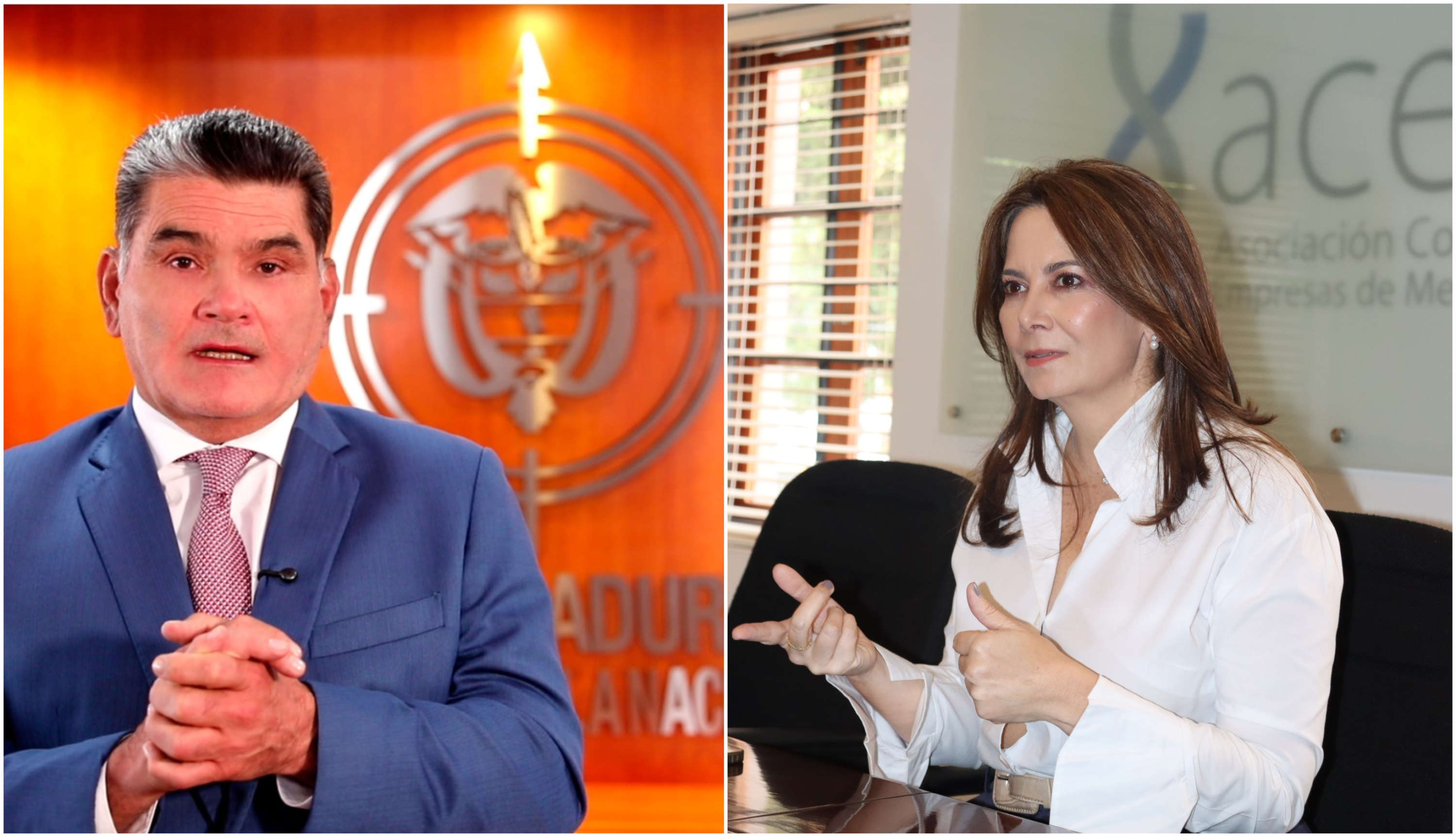
The proposal was presented to Attorney General Gregorio Eljach. Photo: Attorney General's Office / Acemi
First, it is important to note that in Constitutional Court Ruling 007, which mandates the formation of these roundtables for the review of the UPC, the Court instructs the Ministry to convene the Attorney General's Office as part of the roundtable. The Attorney General's Office was present in the first exercise, but it did not allow for a real technical discussion. Its participation was through the Ministry of Health, which, as we have seen, did not facilitate a consensus-building exercise that recognized the system's underfunding. What we are asking now is for the Attorney General's Office to take an active role, proposing and leading to ensure that the roundtable is conducted differently.
Why did the previous technical roundtables led by the Ministry of Health fail? The first reason was the composition of the panel: there were no stakeholders. Representatives from unions, academia, or physicians were not present. If there is to be a substantive discussion about the financing of the system—the most important decision to alleviate this crisis—all must be represented. The second reason is that there are two positions: the Ministry maintains that the UPC is sufficient, while insurers and patients, backed by the Court, believe there is a deficit. A methodology is needed that allows for gathering technical arguments from both sides and seeking consensus. However, the Ministry used a methodology called Philips 66, which organized the discussion into subgroups where insurers sat with insurers, providers with providers, patients separately... and the Ministry, which is both judge and jury, guided the exercise. Furthermore, there were biases in the formulation of the questions and in the analysis, and no real technical presentation by the EPS was allowed.
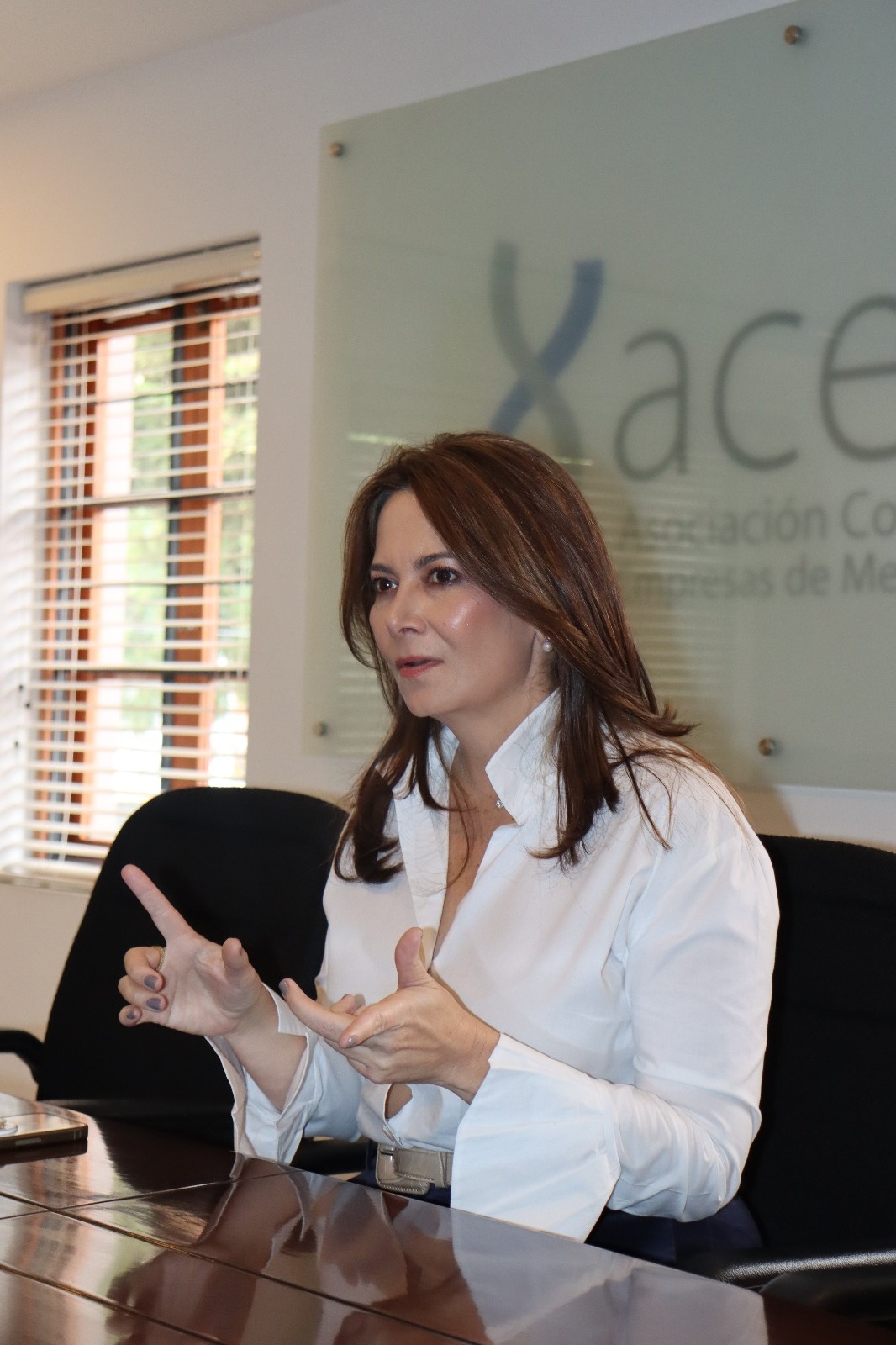
Ana María Vesga, president of Acemi. Photo: Acemi
There are many conflict resolution methodologies. We don't want to impose one, but we do want to start from the recognition that there are two opposing positions. This requires establishing a balanced and calm table, as in any complex negotiation. In previous tables, for example, there was an imbalance: two representatives from insurers versus twelve or thirteen from providers. Nor was it possible to present adequately—there weren't even audiovisual aids. We are asking for a table where each session addresses a specific question, where prior technical support is provided, where arguments are allowed, and all of this is submitted to an independent technical table for evaluation. We are not asking that the Ministry lose its legal authority to set the UPC, but we are asking for acceptance that a technical conflict exists and that it must be resolved with the support of impartial third parties.
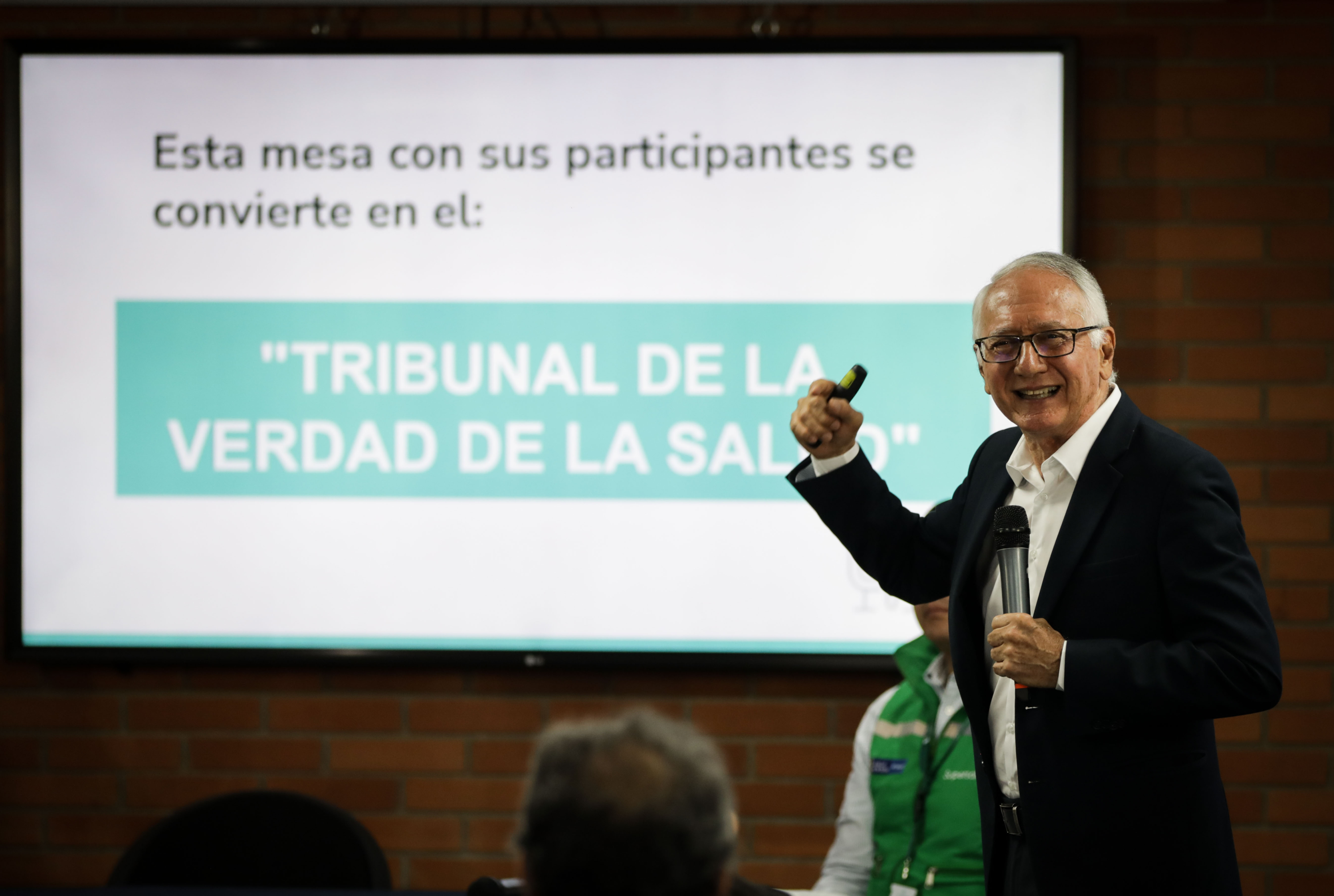
Health Minister Guillermo Alfonso Jaramillo at the installation of the UPC working groups. Photo: Mauricio Moreno
IPSs already submit information through the RIPS (Regulatory Public Health System), which, while not perfect, is mandatory. Just as since 2019, EPSs have been required to provide detailed information—which represents an immense effort, considering that, for example, the Nueva EPS receives four million invoices per month—the IPSs can also be asked to submit their invoices. This information can be cross-referenced and a representative sample generated, as is done in any statistical estimate. The problem is that today there is an official narrative that insists EPSs provide deficient information, but the same rigor is not required of IPSs. If we standardize the information, we could compare which EPSs reported which expenses, which IPSs invoiced those expenses, and discover where the inconsistencies lie. This would also allow us to more accurately determine how much the system costs the country and what the debt between the actors really is. Currently, there are huge discrepancies between the figures handled by hospitals and EPSs, and that should not happen.
What about the intervened EPSs, like Nueva EPS, that are not reporting information? This is one of the biggest gaps. The Nueva EPS (New EPS), which has 12 million members—25% of the system—has not provided financial information for either 2023 or 2024. A representative was present during the discussions, but not with consolidated information. It's paradoxical that the same government that complains about the quality of EPS information doesn't require its own auditors to provide data on the entities under their control. Today, 60% of the population is affiliated with intervened EPSs. If this information isn't available, the analysis is incomplete. One alternative is to use information from the providers who work with these EPSs to reconstruct spending, but ideally, the government should assume its responsibility and guarantee the delivery of data.
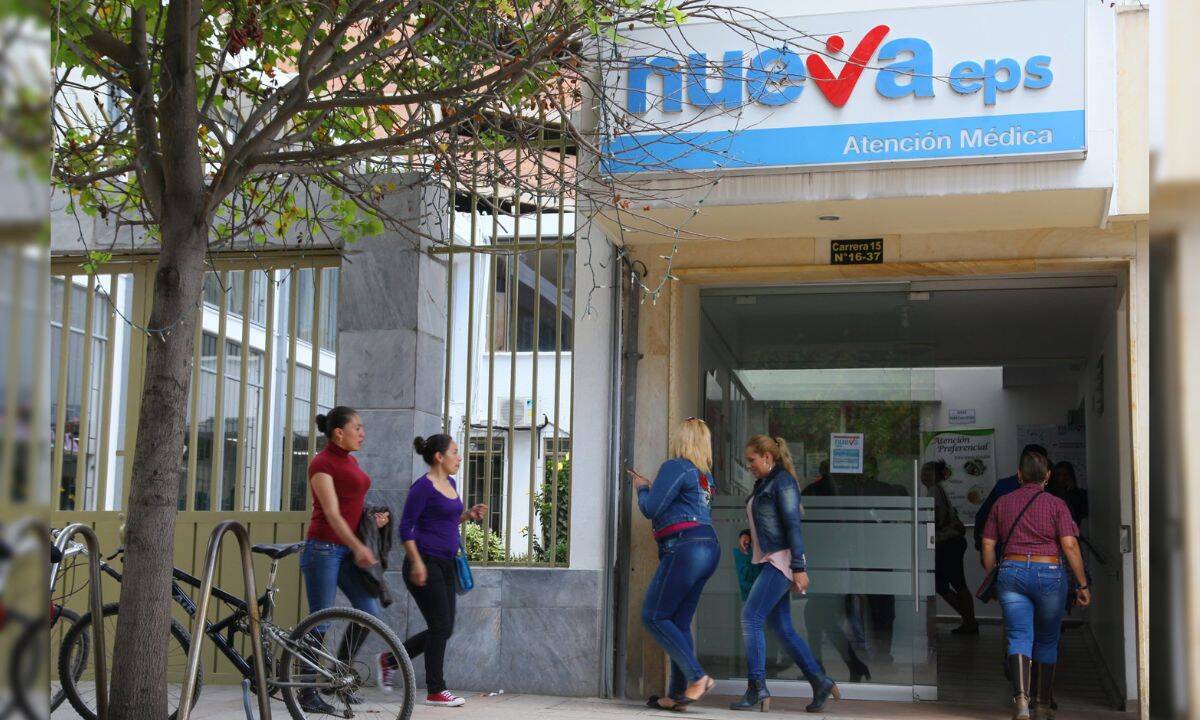
Nueva EPS did not report data during the technical meetings. It is the largest EPS in the country. Photo: Luis Lizarazo García. EL TIEMPO Archive
This means that each session must address a specific question—frequencies, severities, accident rates—and not move forward without having resolved the previous issues. In previous roundtables, for example, the Ministry presented the sufficiency study, which we were all already familiar with. There was no opportunity to present our own figures or compare what the Ministry said with what we saw in the data. There must be a facilitator who summarizes at the end of each session: "These are the Ministry's numbers, these are the EPS's numbers, there are differences here, there are agreements here," and this is passed on to the technical roundtable for analysis. But today we don't know what the Ministry collected or how it will process it.
The Court ordered the calculation of the adjusted UPC for 2024. Do you think this will be achieved now? This was never resolved at the last round of meetings. The Ministry refuses to accept the existence of a deficit. From the beginning of the roundtable discussions, they claimed they were the only ones competent to set the UPC and that they had already calculated it. Therefore, they limited themselves to explaining what they had done, without reviewing the shortfall. The Court, even in its most recent ruling, points out that they are misunderstanding the question. The Court has already established that there is a backlog; what remains is to calculate its magnitude. If the Ministry repeats the same exercise, nothing will be achieved. That's why we went to the Attorney General's Office with this proposal. We don't know if it will work, but we have to try. This is the most important exercise in the health system right now.
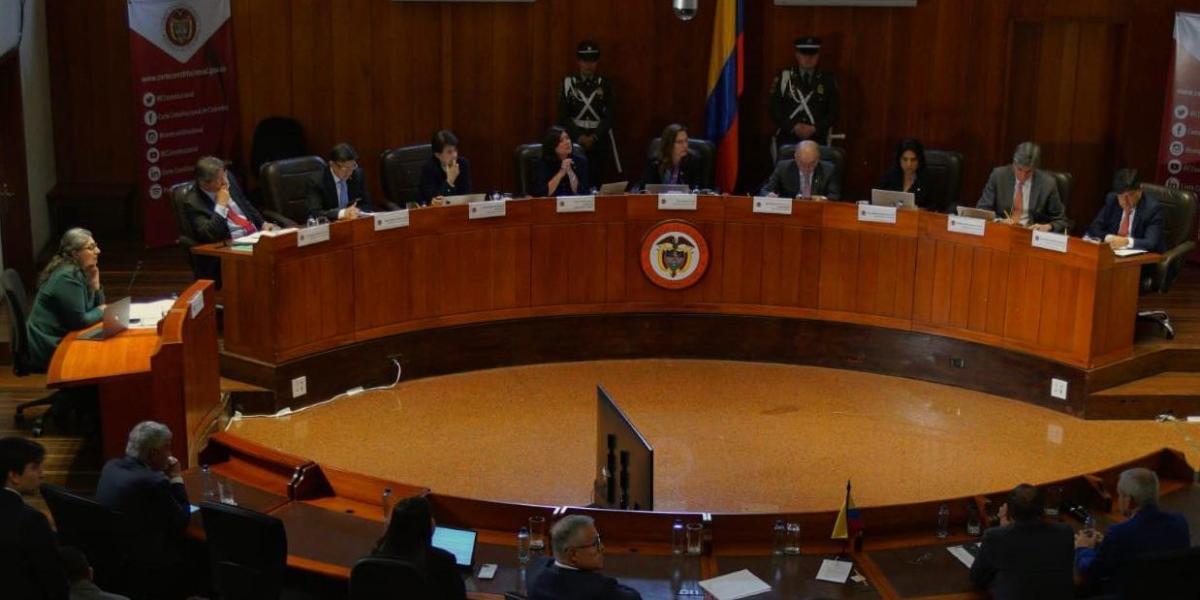
Constitutional Court Photo: Constitutional Court.
It's not like a power outage that happens from one moment to the next. The system continues to function, but it's deteriorating every day: beds are closing, doctors stop providing care, there are shortages, hospitals are cutting services due to nonpayment... Today, all the health care providers—with few exceptions—are in negative equity. Hospitals are in crisis. This can't be delayed any longer. Regardless of what happens with the health reform, the decrees, or the referendum, without financing there is no system. And this must be resolved now. The economic deficit affects patients and providers. The Court has set a deadline: the technical committees must be reactivated by July, and the new UPC must be resolved by September. If done correctly, we can still correct the course.
What do patients, unions, and Acemi expect from the Attorney General's Office's role in this process? The Attorney General's Office has shown genuine interest and invited us to follow-up sessions. What we are asking is for it to propose a new method for conducting the discussion and ensure compliance with the Court's mandate. This is not just a technical debate; it is the only way to save the Colombian health system.
Environment and Health Journalist
eltiempo





